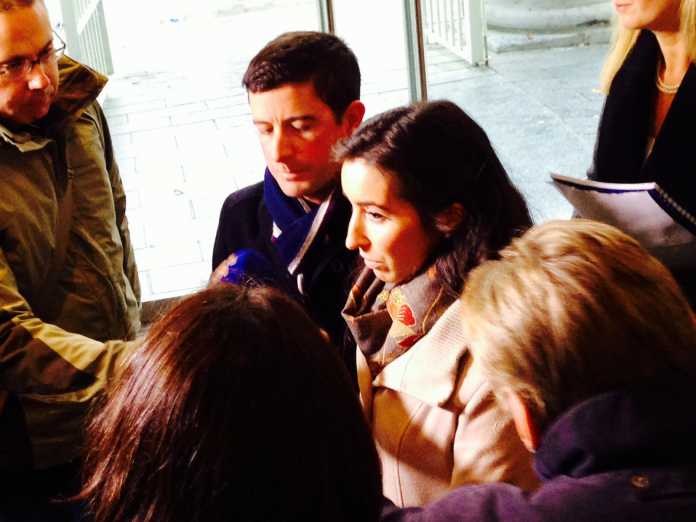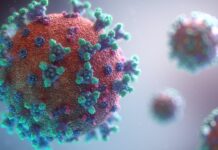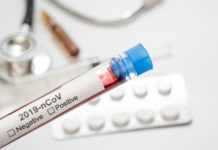andrew@limerickpost.ie
THE LIMERICK doctor who treated a woman who lost her baby has said that the infant would have been born alive if the mother was kept in hospital.
Consultant Gynacologist Dr Mark Skehan told Limerick Coroner’s Court that he saw expectant mother Amy Delahunt a month before her baby died. Both mother and baby were doing well “and nothing was expected to go wrong”.
Ms Delahunt (34) from Borrisoleigh Co Tipperary, wept as she recounted the events leading up to the stillborn birth of her daughter Mary Kate Kelly at the Maternity Hospital in Limerick, on May 28 2013.
Before she started her evidence, Ms Delahunt asked if she could pass around a photo of Mary Kate “so everyone knows why we are here”.
Ms Delahunt was a patient with consultant gynacologist Dr Mark Skehan in Limerick but on May 21, 2013, she was working in Portlaoise when she sought help regarding her concerns over her baby’s reduction in activity in the womb.
She learned of four previous infant deaths at the same hospital in Portlaoise after watching a Prime Time investigation programme.
Ms Delahunt told the inquest how she and her partner Oliver Kelly had been trying for many years to start a family and were overjoyed when they finally conceived with the help of fertility treatment.
The pregnancy continued as normal until 34 weeks, when Ms Delahunt became concerned about lack of foetal movement. Dr Skehan said that he had seen Ms Delahunt one month earlier and all was well and “nothing was expected to go wrong”.
On May 21, 2013, she went to the Maternity Assessment Unit (MAU) in Portlaoise hospital, five minutes from the school where she works as a secondary teacher as she was worried about her baby.
She was monitored on CTG, a cardio monitor which gives a trace or graph of the baby’s foetal movements and an ultrasound was carried out.
Registered midwife Sally Hanford told the inquest how she aired her concerns to the on-call Registrar Dr Chuck Ugezu about three unprovoked decelerations in the baby’s heart rate as picked up in Ms Delahunt’s CTG trace.
Dr Ugezu said it was unnecessary to repeat the trace which he said was normal for this period of pregnancy and he performed an ultrasound scan which he said was fine.
Ms Hanford said she told Dr Ugezu that he could not stand over the trace and they needed to contact consultant obstetrician Dr Miriam Doyle who was on duty in the maternity ward to review the trace.
Ms Delahunt was subsequently discharged and told to keep a check of foetal movements overnight, ahead of her scheduled anti natal appointment in Limerick, the following morning.
When she went for the appointment, she was told by midwives in Limerick that they could find not find a heartbeat on the scan, and that’s when she knew her baby girl was gone.
“I just wanted them to deliver the baby straight away. I didn’t want to be carrying around a baby bump with a dead baby inside and people thinking I was going to have a healthy baby.”
She had to wait six more days before she finally gave birth to baby Mary Kate.
Dr Chuck Ugezu, a former registrar at The Midland Regional Hospital in Portlaoise, apologised for the “understandable upset caused”. He also acknowledged he should have insisted she be admitted on the day she presented at Portlaoise, for further observations and for steroid injections and further CTG traces.
Consultant Obstetrician Dr Miriam Doyle said she had no recollection of Ms Delahunt on May 21, 2013 or speaking to midwife Hanford about her case. She said that Ms Delahunt should have been admitted.
She also agreed that if she had been kept in hospital, the baby would have born been alive, although it was uncertain how healthy.
During the second day of evidence, Dr Skehan said he agreed that Amy Delahunt should have been immediately admitted to Portlaoise hospital.
Many of the staff in Limerick were in tears over the death of little Mary Kate and all they could do was “help the mother and try and get through the situation. It is terribly sad and quite difficult in the hospital when there is such an occurrence”.
Pathologist, Dr Peter Kelehan, said the cause of death was uncertain but delayed maturation of the placenta, a lateral insertion and hyper coiling of the coil could have contributed.
The jury returned a verdict medical misadventure and a number of recommendations were made including that HSE promote lifelong learning amongst medical staff; maternity medical staff should receive adequate and ongoing CTG trace training; the HSE national policy on open disclosure should be implemented in full; there should be clear written instructions on the escalation of care; that patients with non-reassuring CTG traces or with concerns over foetal movements should not be discharged from hospital unless done so by a consultant; expectant mothers discharged from hospital should be given clear written instructions on monitoring foetal movement and that the HSE should publish and be obliged to adhere to adequate staffing levels in all hospitals.
Speaking afterwards, the parents of Mary Kate Kelly had these comments.











